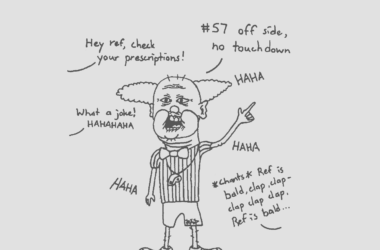The Graduate Record Examination (GRE) is about to undergo major alterations, but people disagree on what they might mean.
The changes will affect a large number of students looking to attend university beyond the undergraduate level. Most academic graduate programs in the United States currently require applicants to submit GRE scores, as do a handful of other programs, including some at McGill. Additionally, an increasing number of MBA programs accept the GRE as an alternative to the GMAT.
Until now, the GRE has been a more difficult version of the SAT, a standardized test required for most American undergraduate programs. It has been scored on a scale between 600 and 800 and has included three sections: verbal, quantitative, and analytic writing. The verbal section asked students to answer some reading comprehension questions and to show their grasp of vocabulary by choosing antonyms and analogies from a multiple-choice list. Quantitative questions required test-takers to answer high-school-level math questions. Lastly, the analytical writing portion—the only non-multiple choice part of the test—tested writing and reasoning ability through two short essays.
The revised GRE will differ considerably. In changes that Educational Testing Services—the organization that administrates the GRE—advertises as “test-taker friendly,” the analogies, antonyms, and mental arithmetic are gone. Instead, the new format will ask test-takers to define words in context, feature a new on-screen calculator, and allow students to skip questions and come back to them later. It will also change the scoring scale, switching to a system of one-point increments between 130 and 170, and the whole test will be roughly an hour longer.
Tom Ewing, director of press relations for ETS, said that ETS “wanted to make improvements to the test so that it depended less on memorization and more on measuring the test-takers’ reasoning abilities. A lot of that is by the fact that questions like analogies and antonyms are being removed from the test in favour of more scenario-based real life sort of questions.”
Lee Weiss, director of graduate programs at Kaplan Test Prep, painted a less rosy picture of the test revisions. While noting that changes like the new calculator and an improved interface will benefit test-takers, he claimed that “all in all, we would definitely say that it’s a tougher test.”
Using a free sample test made available by ETS, along with information from conferencing with ETS, students and Kaplan-associated experts have agreed that the test is harder, Weiss said. He highlighted in particular the test’s new length—roughly four hours—and the change from strictly multiple-choice verbal and quantitative sections to ones where students may have to supply their answers or choose multiple ones. In this new format, Weiss predicted that some students would have to study more than they did previously.
Ewing denied that the test will be tougher and claimed that students involved in ETS’s testing “seemed to like” the new design. He also noted that, being in the industry of test preparation, depicting the test as more complicated was a good business strategy for Kaplan. Weiss declined to comment on ETS’s reasoning for portraying the test as they did. Of course, a successful and respected GRE is also good for ETS’s business.
Regardless of disagreements on some aspects of the revisions, Ewing and Weiss both noted some important information: the new test will be unveiled in August 2011, and students who write the test before the end of September will receive 50 per cent off their registration fees, but due to the volume of test-takers necessary for ETS to generate accurate percentiles, no test-takers will receive their scores until mid-November. Students who need scores for November deadlines, then, or ones who may want to take the test more than once, are advised to take the current test instead. Students looking to get a taste of the new test can try it out on ETS’ site or at kaplanpracticetest.com or princetonreview.com.
Here at McGill, it’s not clear how the changes will affect admissions procedures. Every department has its own way of dealing with the test. Giovanna LoCascio, Graduate Program Coordinator at the Department of Psychology, explained that, for psychology, at least, the GRE is considered as part of the whole application package and there are no cutoffs or minimum scores. The admissions committee has not considered the new changes yet.







